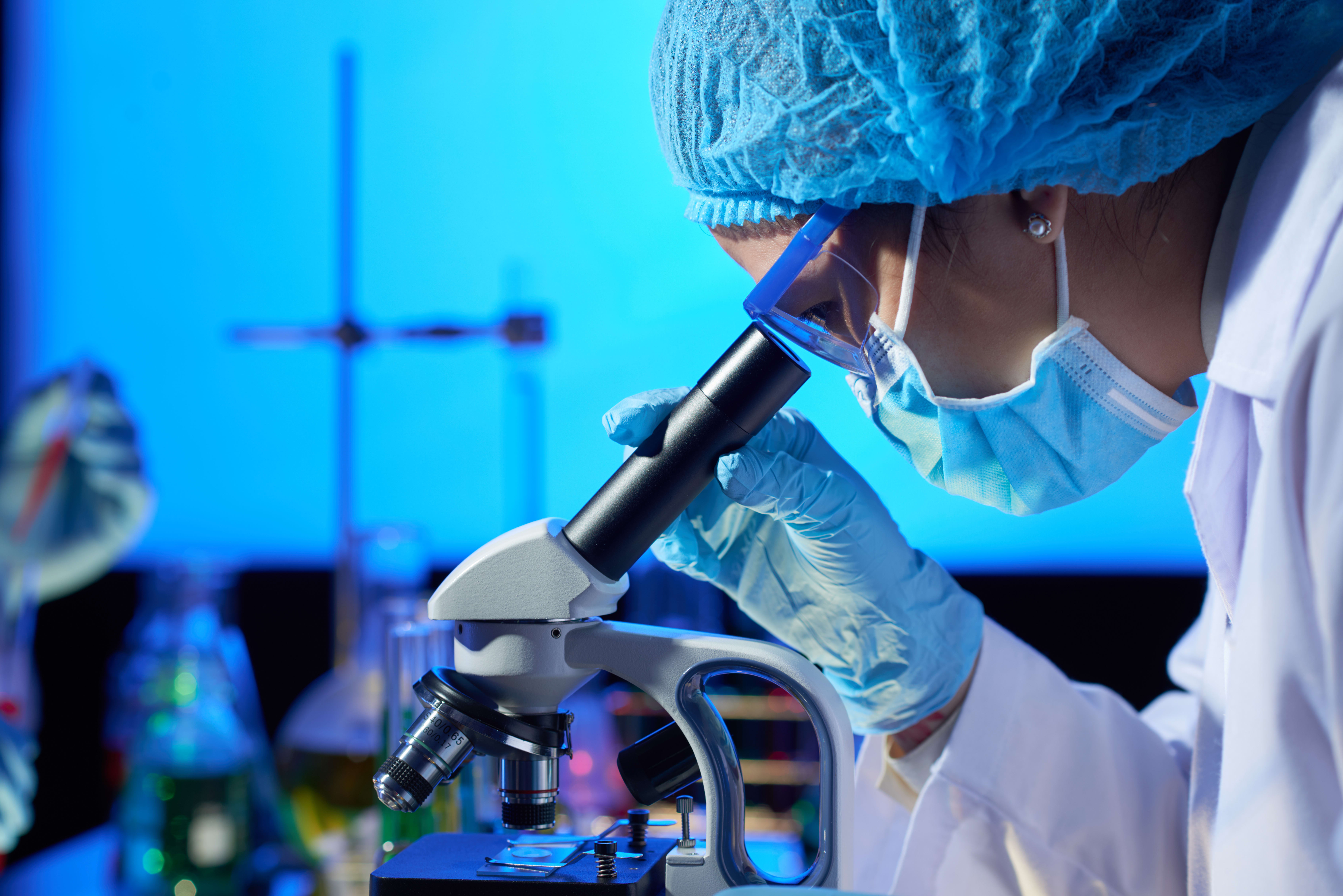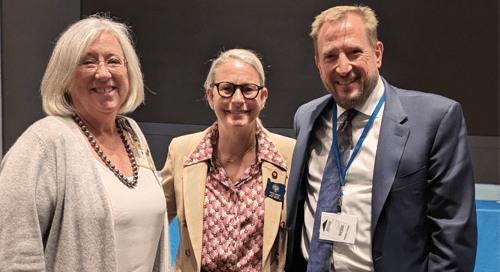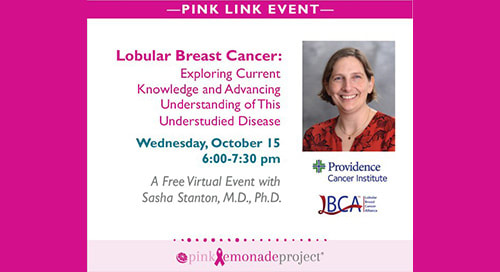Call 833-786-1120 or complete the form to schedule a mammogram or other breast health service.
Request AppointmentArrington Comprehensive Breast Center
A priority for Covenant is women’s health. At the Arrington Comprehensive Breast Center, located inside the Women's Center at Covenant Children's Hospital, this begins with screening to identify whether you have a genetic risk factor. As part of this comprehensive approach, you have access to a dedicated breast health navigator to support you throughout your journey.
When you’re a patient at Covenant, we don’t just treat your breast cancer we treat you. We use the most advanced treatments to create a highly personalized care plan. We also support you and your loved ones with a full range of services throughout your treatment. The result is effective, whole-person care for your body, mind and spirit.
Arrington Comprehensive Breast Center
A priority for Covenant is women’s health. At the Arrington Comprehensive Breast Center, located inside the Women's Center at Covenant Children's Hospital, this begins with screening to identify whether you have a genetic risk factor. As part of this comprehensive approach, you have access to a dedicated breast health navigator to support you throughout your journey.
When you’re a patient at Covenant, we don’t just treat your breast cancer we treat you. We use the most advanced treatments to create a highly personalized care plan. We also support you and your loved ones with a full range of services throughout your treatment. The result is effective, whole-person care for your body, mind and spirit.
Testing and Diagnostics
Your doctors use many diagnostic and prognostic tools to determine which therapies work best to treat your cancer. Taking into account factors specific to your case, like cancer type and the genetic or molecular profile of the tumor, this may include one or more of the following:
- Breast magnetic resonance imaging (MRI)
- Gene expression assay
- Genetic testing and counseling
- HER2/Neu
- Hormone receptor (HR) status
- Mammography (2D, 3D)
- Ultrasonography
About Breast Cancer
Breast cancer is cancer that forms in the cells of breast tissue. It is more common in women, but men can get breast cancer too.
Our expert oncology team uses the most effective, leading-edge therapies to treat patients with breast cancer and its related conditions, including:
- Ductal cancers
- In situ cancers
- Infiltrating or invasive cancers
- Lobular cancers
- Metastatic cancers
Mammography Services
We have a team of expert technologists. They are licensed and certified in mammography by the state of Texas and the American Registry of Radiological Technologists. When you get a mammogram, a physician interprets all images at Lubbock Diagnostic Radiology. They follow strict qualification standards from the Mammography Quality Standards Act and the American College of Radiology.
Importance of Getting Regular Mammograms
Providence encourages every woman to talk to her doctor, beginning at age 40, about when to start breast cancer screening through regular mammograms.
Why Choose Us for Your Breast Cancer Care?
From diagnosis to recovery, you have access to the best breast cancer specialists and a full range of support services for you and your loved ones – all conveniently located here in the region’s largest, most prestigious health system.
Awards and Accreditations
We are proud to see our dedication to our cancer patients recognized by some of the most well-respected programs and institutions in the United States. Arrington Comprehensive Breast Center has earned the following recognitions:
- Breast Ultrasound Accreditation – American College of Radiology (ACR)
- Mammography Accreditation – American College of Radiology (ACR)
- Stereotactic Breast Biopsy Accreditation – American College of Radiology (ACR)
Supporting Our Cancer Patients
Part of treating your illness means supporting and empowering you as a whole person – body, mind and spirit. We provide you with a wide range of support services beyond conventional treatment to help you and your loved ones through your treatment journey as comfortably as possible. Depending on your personal needs, this may include one or more of the following:
- Chaplain services
- Community partnerships
- Counseling
- Genetic counseling
- Interpreter services
- Lodging services
- Mobile in-home health
- Nurse navigation
- Nutrition services
- Oncology pharmacy
- Outpatient services
- Palliative care
- Physical rehabilitation
- Screening programs
- Social work services
- Support groups
- Transportation services
- Women’s health services
Frequently Asked Questions
- Before scheduling a mammogram, please speak with your doctor about any recent problems or abnormalities concerning your breasts.
- If you've had previous mammograms, make them available to the radiologist. It's helpful for the radiologist to compare previous images with the new ones.
- Don't schedule your mammogram the week before your period if your breasts are usually tender during this time. The best time is one week after your period.
- Always inform your doctor or radiology technologist if there is a possibility that you’re pregnant.
- Don't wear deodorant, talcum powder or lotion under your arms on the day of your mammogram. These can appear as calcium spots on X-rays.
Before the examination, you'll be given a hospital gown or a loose-fitting drape that opens in the front. You'll be asked to remove all jewelry and clothing above the waist.
A radiologic technologist will position you at the mammography unit to image each breast. The breast will be placed on a firm, flat X-ray surface and compressed with firm, gentle pressure from the mammography device. The compression causes discomfort for some women, but most find it to be painless.
Breast compression is necessary to:
- Allow the use of a lower X-ray dose
- Create a sharper picture
- Hold the breast still, eliminating blurring of the image
- Spread out the breast thickness so that all tissue can be visualized
- Spread out the tissue so that small abnormalities won’t be obscured
While the breast is compressed, the technologist will take an X-ray, helping you change positions slightly between images. Generally, mammograms include a top-to-bottom view and a side view of the breast tissue. The process is repeated for each breast.
The examination process for a mammogram generally takes about 20 minutes.
When the exam is complete, you'll be asked to wait until the technologist evaluates the images to determine if more images are needed. If an image is unclear or if a finding seems suspicious, the radiologist may recommend further diagnostic studies.
If you were referred by another doctor or primary care provider, we’re happy to send a copy of your mammogram to them.
In the very earliest stages, breast cancer has no outward symptoms. Sometimes the earliest sign is a tiny lump, or mass, that’s only detectable on a mammogram. As the disease progresses, however, more noticeable changes might appear. These can vary widely – while a lump is the most common symptom, it’s by no means the only one.
Any of the following changes could be a warning sign of breast cancer:
- Bloody nipple discharge or unilateral discharge other than breast milk
- Dimpling, puckering, irritation or scaliness of the breast skin or nipple
- Lump in the breast or armpit area
- Nipple that turns inward, flattens out, pulls to one side or changes direction
- Pain or tenderness in the breast or nipple
- Swelling in all or part of the breast
- Thickening or redness of the breast skin
These symptoms may be signs of breast cancer in men as well as women.
If you notice a potential symptom of breast cancer, or if you’re concerned about any changes in the way one of your breasts looks or feels, please call your primary care provider or a breast care specialist.
While these symptoms don’t always indicate cancer – sometimes they are signs of something less serious, such as a cyst or an infection – it’s important to have a physician evaluate them right away. Don’t wait to see if they go away on their own.
It bears repeating, treating breast cancer successfully is much easier when it’s caught and treated early.

Part of Providence Covenant Health System
We’ve been caring for patients throughout West Texas and eastern New Mexico for over 100 years, and our patients are at the center of everything we do.
- We have the only freestanding children’s hospital and on-site genetic counseling service in the region.
- With a mission to improve patient care and outcomes, we collaborate with research organizations like Texas Tech University and the Children’s Oncology Group.
- Partnering with outside organizations, we help patients in need find lodging and shuttle service if they must travel for care.
Expert Tips and Advice for Cancer




